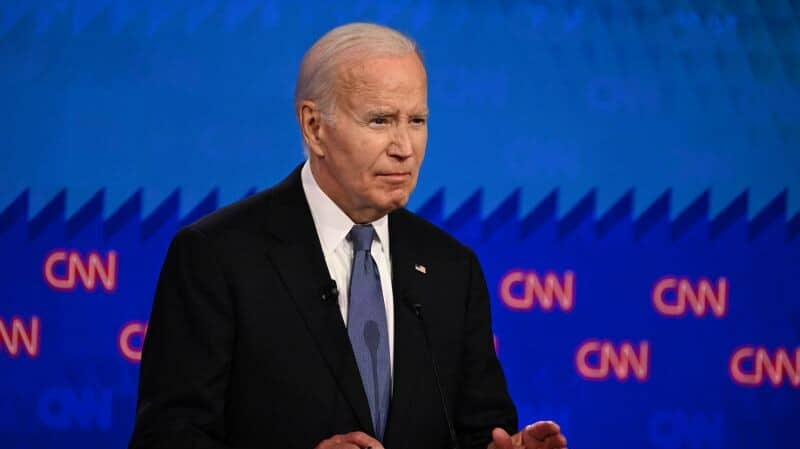
US: What happens if Biden decides to leave presidential race?
What's the story
Following United States President Joe Biden's lackluster debate performance, Democrats are questioning the possibility of his departure from the 2024 presidential race. Notably, it won't be straightforward, given that Biden is already the Democrats' presumptive nominee and has been strongly favored by primary voters. With minimal opposition in the primaries and having secured almost all of the party's delegates, it's highly improbable that he would withdraw from the race involuntarily.
Succession process
Delegate selection and potential replacements in focus
If, however, Biden were to leave the race, individual delegates would need to select the party's nominee. The Democratic Party has set a June 22 deadline for states to select over 3,900 delegates, most of whom are pledged to Biden. These delegates, approved by his campaign, would be responsible for picking his replacement. Potential successors could include Vice President Kamala Harris or other candidates who have previously claimed they could run a more effective campaign against former President Donald Trump.
Election mechanics
Role of superdelegates and post-convention scenarios
Another group to consider in this scenario is the "superdelegates," approximately 700 senior party leaders and elected officials who are automatically delegates to the convention. They can't vote on the first ballot if they could swing the nomination but are free to vote on subsequent ballots. If a candidate left the race after the convention, the Democratic National Committee has authority to fill a vacancy on the national ticket after consultation with Democratic governors and congressional leadership.
Past instances
Historical precedents and constitutional provisions
In modern times, there has been one instance where a candidate left the race after the convention. In 1972, Senator Thomas Eagleton had to step aside after it was discovered that he was treated for mental illness, leading the DNC to affirm Sargent Shriver as Democratic nominee George McGovern's second-choice running mate. If a president-elect was incapacitated after the election, timing is crucial. Under the Constitution, it is electors meeting in state capitols who technically cast votes for the presidency.
Legal aspects
The 25th Amendment and party rules in focus
An in-depth Congressional Research Service memo notes that if an incumbent president becomes incapacitated after winning the party's nomination, the 25th Amendment would elevate the vice president to the presidency. However, party rules would determine who rises to become the party's nominee. Neither party requires that the presidential candidate's running mate be elevated to the top of the ticket, though that would be most likely. The law itself is murky regarding this scenario.
Constitutional clauses
The 20th Amendment and its implications
The 20th Amendment provides further clarity on the succession process. If a president-elect dies, his or her running mate becomes president. However, the Congressional Research Service memo suggests that it would clearly make sense for a vice president-elect to simply assume the role of president-elect in case of incapacitation after election, but the law itself is not explicit on this matter. This leaves room for interpretation and potential legal challenges in such an eventuality.